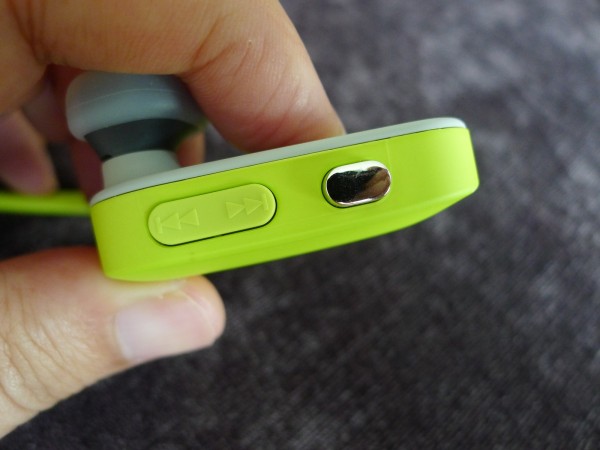
To track your workouts, you can wear a smart watch or strap a smartphone on your arm during a jog. Now, there are also do-it-all smart earphones, like Sony’s Smart B-Trainer.
The Japanese electronics firm seems to have taken its self-contained sports earphones and added a host of sensors into them to come up with the new fitness tracker.
Hung around your head like a sports band, the Smart B-Trainer not only pipes music into your ears but also measures your heart rate, maps your run (using a GPS sensor and compass), checks your elevation and even measures workout conditions (through a barometer).
The six types of sensors give you the usual data you are already used to collecting on your smartphone. These include stuff like burned calories, distance, cadence and running route.
All this would not have been so impressive if Sony hadn’t cramped the features into a waterproof device weighing just 43 grams.
The Smart B-Trainer doesn’t weigh down on your ears too much. Sony has smartly used the bendable cable that wraps around your head to bear some of the weight, relieving your ears.
Still, the difference is clearly obvious if you, like I, have been using lightweight Bluetooth earphones such as the 25-gram Jabra Sport Wireless+. Lighter earphones are still more comfortable on your ears.
Of course, you’d need a separate smartphone or MP3 player for that. With the Smart B-Trainer, you just pick up your smart earphones and step out of your house for a run.
As a music player, it comes with 16GB of storage for music. Separately, it can also connect via Bluetooth to smartphones or supported iPods.

What I like, in particular, is how easy it is to get started. Even if you haven’t got time to transfer your own music to the Smart B-Trainer via a PC, the workout tracks onboard give you a nice boost, as I experienced during my runs.
The constant audio feedback is particularly useful. Clearly, Sony has spent some time making the canned messages, like how far you have jogged, sound as human as possible. A flat synthesized voice is sure to slow you down.
The distance measured, going by my usual route, is also pretty accurate. As is usual with some GPS sensors, the Smart B-Trainer’s took a few minutes to get a fix on my position during a recent run.
Yet, despite just tracking distance without a GPS lock-on for the first 1km, the device was accurate overall in correctly measuring my entire 4km workout. It got the distance right.
The heart rate monitor, located in the right ear piece, can be a little fussier. If you adjust its placement during a run, you might be told that a signal is missing, only to get it back in the next few seconds.
Still, where it mattered, I think the Smart B-Trainer was pretty accurate. During a recent run, it told me my heart was pumping at up to 181 beats per minute during the last part of a run.
That was about right, because I was panting hard. I’m almost 41 years old so taking the “220 minus your age” formula, my “close to exhaustion” heart rate should be about 179.

Yet another thing I like is the many buttons on the Smart B-Trainer, which help you interface with it without a screen. The workout button, in metal to stand out from the rest, gets your workout started and lets you pause or end a session.
What’s handy is an “information” button that gives you instant guidance on how you’re doing in terms of pace and distance, for example. If you are training hard – unlike me – you will find it useful to know how you’re doing at any one time.
After your runs, you simply connect your fitness device to your smartphone through a Sony app. This gives you details like distance, time, pace, calories burnt and steps taken.
Interestingly, you don’t need to hook up to a PC unless you want to update your Smart B-Trainer’s firmware. Sony essentially treats the fitness gadget like a smart watch that hooks up mostly to your phone.
If there’s one word of caution about the Smart B-Trainer, it’s that it won’t work well in the pool. Well, not for your laps anyway.
Despite being waterproof, the ear buds can get pushed hard into your ears and get quite uncomfortable when you go underwater, thanks to the added pressure. Plus, things sound a little too bass-heavy when below the surface.
For this, I’d go with specialised gear that rely on bone conduction rather than playing music through your ear drums to counteract the effects of water. The Finis Nepture is one such device.
For your runs, I’d still say the Smart B-Trainer is a great piece of kit. It’s to Sony’s credit that it has managed to address obvious issues such as usability and weight, despite packing in so many sensors.
However, users still have to be convinced to pay S$399 for a device to replace that strap-on smartphone and earpiece that they may have already got comfortable with.






